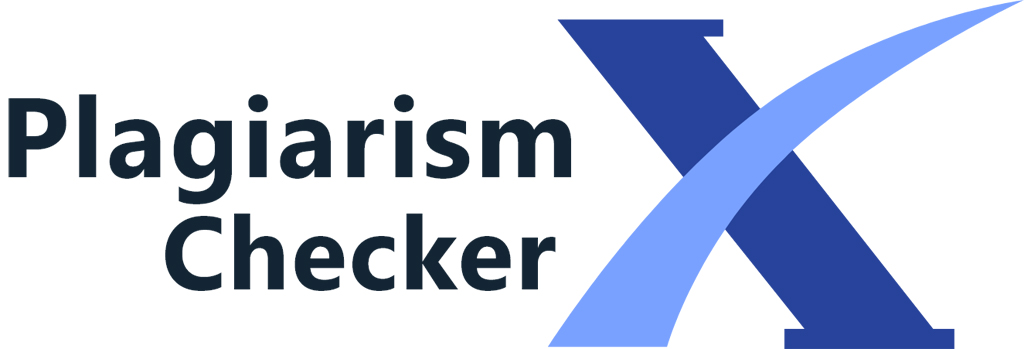Penerapan Pendekatan Open-Ended untuk Meningkatkan Kemampuan Berpikir Reflektif Matematika Siswa di SMA Negeri 1 Panyabungan
Keywords:
berpikir reflektif, pendekatan open-ended, pembelajaran matematika, penelitian tindakan kelasAbstract
Penelitian ini bertujuan untuk meningkatkan kemampuan berpikir reflektif matematika, aktivitas belajar siswa, serta kemampuan guru dalam mengelola pembelajaran melalui penerapan pendekatan open-ended pada materi logika matematika di kelas X MIA-1 SMA Negeri 1 Panyabungan. Penelitian ini menggunakan desain Penelitian Tindakan Kelas (PTK) yang dilaksanakan dalam dua siklus dengan subjek 30 siswa. Data dikumpulkan melalui tes kemampuan berpikir reflektif, lembar observasi aktivitas siswa, dan lembar observasi keterampilan guru, kemudian dianalisis secara deskriptif. Hasil penelitian menunjukkan bahwa penerapan pendekatan open-ended dapat meningkatkan rata-rata nilai kemampuan berpikir reflektif dari 71,87 pada siklus I menjadi 82,07 pada siklus II, dengan persentase ketuntasan naik dari 73,33% menjadi 96,67%. Aktivitas belajar siswa meningkat dari 78,33% pada siklus I menjadi 83,99% pada siklus II. Kemampuan guru dalam mengelola pembelajaran juga mengalami peningkatan dari kategori “Cukup” pada siklus I menjadi “Sangat Baik” pada siklus II. Temuan ini menegaskan bahwa pendekatan open-ended efektif untuk meningkatkan kualitas pembelajaran matematika dan layak direkomendasikan bagi guru pada mata pelajaran lain.
References
Baba, T. (2014). Invited Lecture Openness of Problem Solving in the 21st Century: Mathematical or Social? The International Commission on Mathematical Instruction, 1–16. https://www.mathunion.org/fileadmin/ICMI/Conferences/ICME/ICME 14/Proceedings/Invited Lecturers/IL %23Baba Takuya.pdf
Baba, T., & Shimada, I. (2019). Socially open-ended problems for enriching student learning with mathematical models and social values. In P. Clarkson (Ed.), Values and valuing in mathematics education: Scanning and scoping the territory (pp. 171–183). Springer International Publishing Cham. https://doi.org/10.1007/978-3-030-16892-6_12
Bahar, A., & Maker, C. J. (2015). Cognitive backgrounds of problem solving: A comparison of open-ended vs. closed mathematics problems. Eurasia Journal of Mathematics, Science and Technology Education, 11(6), 1531–1546. https://doi.org/10.12973/eurasia.2015.1410a
Carreira, S., & Baioa, A. M. (2017). Creating a color palette: The model, the concept, and the mathematics. CERME 10.
Dewey, J. (1933). How we think: A restatement of the relation of reflective thinking to the educative process. DC Heath.
Erbilgin, E. (2019). Two mathematics teacher educators’ efforts to improve teaching and learning processes: An action research study. Teaching and Teacher Education, 78, 28–38. https://doi.org/10.1016/j.tate.2018.11.005
Farikhoh, I. (2020). Pengaruh Keterampilan Mengajar Guru, Lingkungan Sekolah dan Motivasi Belajar Akuntansi Siswa Kelas X Program Keahlian Akuntansi SMK Negeri Batang Tahun Ajaran 2014/2015. Universitas Negeri Semarang.
Joyce, B., & Calhoun, E. (2014). Models of teaching. Taylor & Francis.
Lin, Y. W., Tseng, C. L., & Chiang, P. J. (2017). The effect of blended learning in mathematics course. Eurasia Journal of Mathematics, Science and Technology Education, 13(3), 741–770. https://doi.org/10.12973/eurasia.2017.00641a
Lo, C. K. (2017). Examining the flipped classroom through action research. Mathematics Teacher, 110(8), 624–627. https://doi.org/10.5951/mathteacher.110.8.0624
Lunn Brownlee, J., Ferguson, L. E., & Ryan, M. (2017). Changing Teachers’ Epistemic Cognition: A New Conceptual Framework for Epistemic Reflexivity. Educational Psychologist, 52(4), 242–252. https://doi.org/10.1080/00461520.2017.1333430
Midgett, C. W. (2001). NCTM’s Principles and Standards for School Mathematics: Implications for Administrators. NASSP Bulletin, 85(623), 43–52. https://doi.org/10.1177/019263650108562306
Niss, M. (1993). Assessment in mathematics education and its effects: An introduction. In Investigations into assessment in mathematics education: An ICMI Study (pp. 1–30). Springer. https://doi.org/10.1007/978-94-017-1974-2_1
Nurgabyl, D., Satkulov, B., & Kagazbayeva, A. (2023). Formation and development of mathematical literacy in the context of evaluative – Study tasks of PISA. In Journal on Mathematics Education (Vol. 14, Issue 4, pp. 701–722). https://doi.org/10.22342/jme.v14i4.pp701-722 LK - https://doi.org/10.22342/jme.v14i4.pp701-722
Patahuddin, S. M., Suwarsono, S., & ... (2019). Indonesia: History and perspective on mathematics education. In Mathematics and its teaching in the Asia-Pacific region (pp. 191–230). World Scientific.
Pathuddin, H., Mariani, A., Busrah, Z., Kamariah, K., & Syukur, S. (2024). Mathematical activities and critical thinking ability in Lagosi weaving process of the Buginese community. Journal of Honai Math, 7(2), 267–286. https://doi.org/10.30862/jhm.v7i2.586
Pujiati, P., Kanzunnudin, M., & Wanabuliandari, S. (2018). Penerapan Contextual Teaching and Learning Berbantu Blok Pecahan untuk Peningkatan Pemahaman Konsep Siswa. ANARGYA: Jurnal Ilmiah Pendidikan Matematika, 1(2), 122–129. https://doi.org/10.24176/anargya.v1i2.2713
Puspitasari, R. Y., & Airlanda, G. S. (2021). Meta-Analisis Pengaruh Pendekatan Pendidikan Matematika Realistik (PMR) terhadap Hasil Belajar Siswa Sekolah Dasar. Jurnal Basicedu, 5(2), 1094–1103. https://doi.org/10.31004/basicedu.v5i2.878
Quine, W. V. O. (1981). Mathematical logic. Harvard University Press.
Rindana, S. E., & Panggabean, E. M. (2022). Penerapan Teori Konstruktivisme pada Pembelajaran Matematika. Journal of Mathematics in Teaching and Learning, 1(1), 32–38.
Salavera, C., Usán, P., & Teruel, P. (2019). Contextual problems, emotional intelligence and social skills in Secondary Education students. Gender differences. Annales Médico-Psychologiques, Revue Psychiatrique, 177(3), 223–230. https://doi.org/10.1016/j.amp.2018.07.008
Sofyan, F. A., Sartono, E. K. E., Badaruddin, K., Fauzi, M., Syarnubi, Oviyanti, F., Soraya, N., & Sukirman. (2024). Analysis of Higher-Order Thinking Skill (HOTS) of Madrasah Ibtidaiyah students in solving open-ended mathematics problems. AIP Conference Proceedings, 3058(1), 60026. https://doi.org/10.1063/5.0201104
Umeh, E. C. (2021). Effectiveness of Active Learning and Self Assesment of First Year Middle School Students’ Mathematical Competencies: An Ethnomodelling Approach. In 1st Maths Education Research Symposium (SIMPEM) (pp. 1–6).
Viseu, F., & Oliveira, I. B. (2012). Open-ended tasks in the promotion of classroom communication in mathematics. International Electronic Journal of Elementary Education, 4(2), 287–300.
Vygotsky, L. S. (1978). Mind in society: The development of higher psychological processes (Vol. 86). Harvard university press.
Wijaya, A. (2018). How do open-ended problems promote mathematical creativity? A reflection of bare mathematics problem and contextual problem. Journal of Physics: Conference Series, 983(1). https://doi.org/10.1088/1742-6596/983/1/012114
Wright, P. (2021). Transforming mathematics classroom practice through participatory action research. Journal of Mathematics Teacher Education, 24(2), 155–177. https://doi.org/10.1007/s10857-019-09452-1
Zaslavsky, O. (1995). Open-ended tasks as a trigger for mathematics teachers’ professional development. For the Learning of Mathematics, 15(3), 15–20.
Downloads
Published
How to Cite
Issue
Section
License
Copyright (c) 2023 Torang Siregar, Leyla Hilda

This work is licensed under a Creative Commons Attribution-NonCommercial-ShareAlike 4.0 International License.







